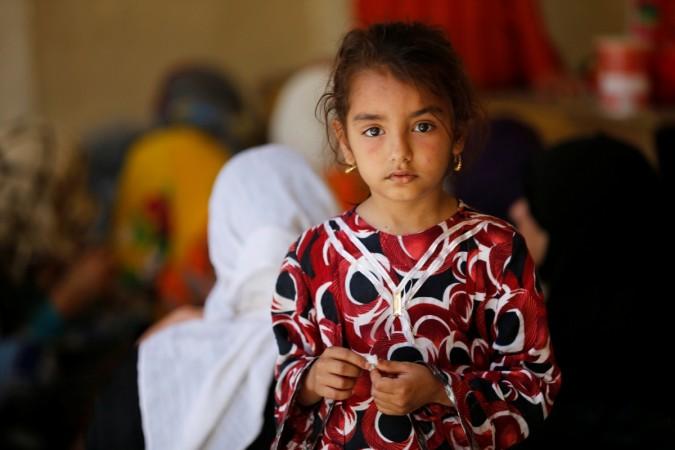
The United Nations Children's Emergency Fund (UNICEF) released a report on Tuesday which stated that 69 million children below five years of age are at the risk of dying from "preventable causes" by 2030 if countries fail to take action to improve the health and education scenario for the underprivileged sections worldwide.
According to the report titled State of the World's Children 2016, 167 million children will be living in extreme poverty, 60 million won't be going to primary school, while 750 million women would have become child brides by 2030, if immediate steps are not taken to tackle inequality. It stated that children are "disproportionately" affected due to conflicts, humanitarian emergencies, natural disasters and health crises.
Of the mentioned countries, over half are from Africa with Angola leading the world with 157 of every 1,000 children below the age of five losing their lives annually as of 2015. It is followed by Chad with 139 and Somalia with 137 child deaths for every 1,000 children.
The Associated Press quoted Justin Forsyth, UNICEF's deputy executive director, as saying that the agency is "broadcasting our message into a world that is more hostile," especially to migrants and refugees, including millions of children. He added that many are fleeing due to poverty and inequality and that these root causes must be addressed "if you're going to stop some of these forces overwhelming particular countries and polarising the political debate."
The report also said nearly 250 million children living in areas of conflict have been displaced. Ted Chaiban, the agency's programme director, was quoted by AP as saying 20 percent children living in the poorest nations of the world are twice at risk of dying than those living in the richest nations. "Eighty percent of preventable deaths now occur in south Asia and sub-Saharan Africa, with almost half occurring in India, Nigeria, Pakistan, Congo and Ethiopia," Chaiban said.
UNICEF has requested all 193 member states to come up with national plans that prioritise the most disadvantaged children and set goals to bridge the gap between the rich and the poor.
Forsyth was quoted by AP as saying at least 147 million children up to five years of age could be saved from preventable death "just with a 2 percent increase in expenditure in 74 countries."
UNICEF also has proof that every dollar spent on vaccinations "can generate $16 dollars in terms of economic returns," he said.
"When we provide education, shelter and protection for children caught in conflicts, we help mend their hearts and their minds - so that, someday, they will have the ability and the desire to help rebuild their countries," UNICEF Executive Director Anthony Lake was quoted by Al Jazeera as saying.
"Inequality is a choice. Promoting equity — a fair chance for every child, for all children — is also a choice. A choice we can make, and must make. For their future, and the future of our world," he said in the report.
















